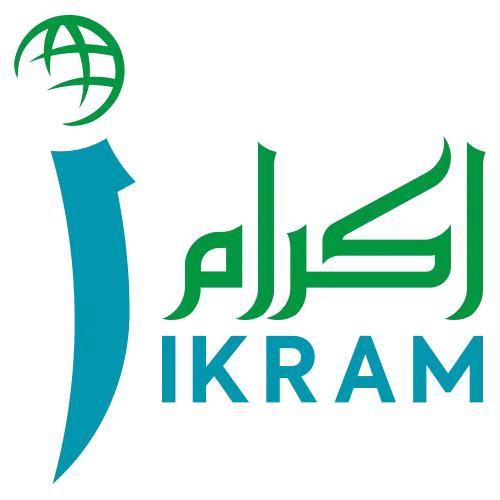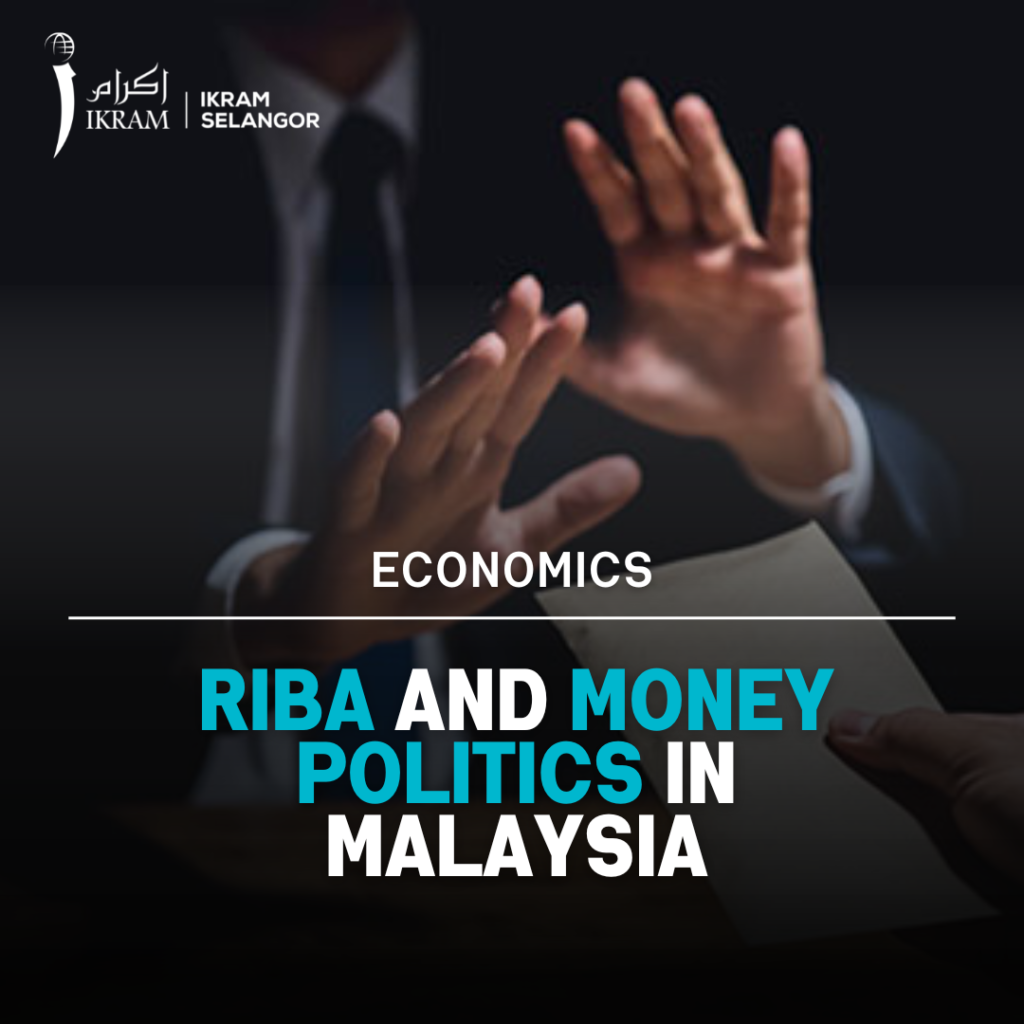𝐑𝐢𝐛𝐚 𝐚𝐧𝐝 𝐌𝐨𝐧𝐞𝐲 𝐏𝐨𝐥𝐢𝐭𝐢𝐜𝐬 𝐢𝐧 𝐌𝐚𝐥𝐚𝐲𝐬𝐢𝐚
Nazari Ismail, PhD
Honorary Professor
Faculty of Business and Economics
University of Malaya
IKRAM Selangor Economic Prosperity Unit
All have acknowledged the phenomenon of money politics in Malaysia. Moreover, everybody agreed that this is a severe problem that needs to end for the country to progress and prosper. The realization of its seriousness peaked during Najib Razak’s time following the exposure of the 1MDB-related SRC scandal. Dr Mahathir said our society has now subscribed to the mantra `Cash is King’. Even though he focused his criticism on Najib, everyone knows that using a lot of money to garner support among UMNO politicians started even before Najib’s time as prime minister.
When Dr Mahathir became prime minister, a cultural change began to evolve among the Malays. Malays looked up to people with knowledge and high ethical and moral behaviour in the past. Now they focus more on material wealth as a measure of individual success. For example, Malays had very high regard for school teachers or university lecturers in the past.
Gradually Dr Mahathir taught them that the people who deserve the most respect are wealthy Malays who can bring material benefits to society. During his tenure as prime minister, he spoke more highly of business tycoons such as Daim Zainuddin, Tajuddin Ramli, Halim Saad and Wan Azmi than teachers or religious personalities. As explained in great detail by Edmund Terence Gomez in his seminal book, `Politics in Business – UMNO’s Corporate Involvement’, these corporate leaders were also very connected to UMNO. They were the financiers for UMNO politicians.
Soon this culture of emphasizing the importance of money and wealth seeped into the Malay community. Over time voters in the Malay heartland love and support political leaders more for their `financial generosity’ towards them than their moral character or knowledge. These political leaders will visit their constituencies and provide financial assistance directly to the voters to the point of helping to pay for their financial expenses, such as electricity and phone bills, wedding expenses, hospital bills etc.
Of course, there are exceptions. Among urban constituencies where voters are more affluent, some are adamant about choosing political leaders who campaign against corruption and abuse of power. In some rural constituencies, some voters remain with their culture of electing political representatives based on their religious or moral character. But elsewhere, many politicians can remain popular only if they can distribute monetary benefits to their party members and voters.
But how are they going to find the money for the purpose? The most common way is to work with business people who obtain contracts from the government. The most straightforward is when they can secure contracts via a direct negotiation and bypass the tender process—that way, the projects can also easily be marked up, thereby ensuring increased profits for everyone involved. The primary beneficiaries will be the business people and the politicians responsible for approving the projects, which means that government expenditures will increase tremendously.
An example is a case many years ago involving a foreign company bidding for a government project. After hearing the presentation by the company, the minister in charge requested the company to inflate the project cost by almost RM200 million. But there was one crucial provisor. The company must form a joint venture with a local company whose chairperson was a local businessman close to the minister. The foreign company immediately understood that the inflated cost was a means to transfer money to the local partner, which would then be made available to the minister for distribution to his political supporters.
So if one project alone can incur an extra cost of RM200 million unnecessarily, imagine the additional costs incurred if all government projects are subject to excessive cost inflation. Unsurprisingly, former Deputy Prime Minister Dr Wan Azizah stated that Malaysia lost RM47 billion in GDP value to corruption in 2017 alone.
How did the government finance all these overpriced projects all these years? Why has the government yet to run out of money by now?
The answer is the government has indeed run out of money for decades already. The reason why the government has still been able to continue to spend money is that the government has been borrowing tens of billions of Ringgit every year to cover the shortfall.
For those who are not aware, every year for the last 22 years, the government has been spending more money than the total revenue received. For example, for 2022, the government’s revenue was projected to be only RM234 billion compared to the planned expenditure of RM332.1 billion.
So where does the government obtain the extra RM98 billion to cover its expenditures? The answer is from government borrowings. The government borrows money by issuing Malaysian Government Securities (MGS) and Sukuks (the so-called `halal’ debt instrument). When the MGS matures, the government will borrow additional funds to repay the previous one. That is why the government’s total debts have increased every year. In 1978, the total Malaysian government debt was less than RM30 billion. In 2022, the total debt was RM1.04 trillion.
Where does the financial industry obtain the vast funds to lend to the government? Under the present rules, banks can create money from thin air and lend it to the government and the corporate and household sectors (whose total debts are more than RM1 trillion each). The loans will end up as assets on the bank’s balance sheets. That is why the banking sector constantly expands, earning vast profits from loans.
This ability to borrow a tremendous amount of money from the financial industry allows the government to spend way beyond the total revenues it receives (in the form of tax collection, dividends from Khazanah, contributions from Petronas etc.). It also provides opportunities for politicians to engage in money politics by channelling money to political supporters to bolster their political influence. The more money a politician can direct to supporters, the more powerful and influential they become.
So a politician who can control the government’s financial aspects becomes the country’s most powerful politician. Hence everyone cherishes the post of finance minister. If the politician holds both the Prime Minister’s position and the finance minister’s position, one can imagine how powerful and influential he is.
Of course, that will open the door to abuse too, which is why the PH coalition insisted before that the Prime minister should NOT also hold the post of finance minister.
In conclusion, money politics in Malaysia is now ingrained in the Malaysian political process and is difficult to eradicate since it has permeated all levels of society to ordinary folks. The enabler of this situation is the Riba-based financial industry. Of course, sooner or later, there will come a time when the government will face problems servicing the debt, forcing it to impose an additional tax on the people. However, if people are experiencing a cost-of-living issue, this can result in dissatisfaction, leading to social chaos. One can only hope it will not lead to communal strife, which is possible if desperate politicians decide to play up ethnic issues to gain political support.





